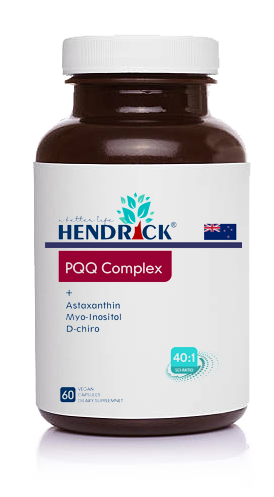14 Signs of Vitamin D Deficiency
Some of the 14 signs of vitamin D deficiency include osteoporosis or low bone density fractures, muscle weakness and cramps, hair loss, and tiredness or fatigue. Vitamin D helps your body absorb calcium. The deficiency occurs when your body doesn't get or process adequate amounts of the vitamin. 1
Vitamin D deficiency can be hard to diagnose because it either produces no symptoms or its symptoms overlap with many other health conditions. Getting your blood levels tested is one way to determine deficiency. A vitamin D deficiency is relatively easy to treat with supplements once a healthcare provider identifies that you're deficient. 2

1. Fatigue and Tiredness
Low vitamin D and fatigue are connected.3 It’s unclear, however, why low vitamin D levels might make you tired or lead to fatigue. Some researchers have still indicated that vitamin D supplements may be beneficial for reducing fatigue.4
2. Frequent Illness
A vitamin D deficiency could be to blame if you constantly get sick. In fact, some research has found a link between higher disease severity in people in intensive care units (ICUs) and low levels of vitamin D.1
This link was examined again after the onset of COVID-19. Studies showed that people with deficiencies may have had a higher risk of getting COVID and getting sicker from the virus.5
3. Muscle Pain and Weakness
Vitamin D promotes muscle function. Low vitamin D levels may increase the likelihood of experiencing symptoms such as loss of muscle tone, atrophy (muscle loss), weakness, and pain. Losing muscle mass and strength can also make you more prone to falling.6
4. Back Pain
Losing muscle strength can lead to increased stress on your back and neck muscles. That increased stress can lead to back pain.7
Lower back pain, in particular, is a common complaint among people with vitamin D deficiencies. Some experts have suggested screening people with lower back pain for vitamin D deficiencies may be helpful, as treatment such as vitamin D supplements can ease pain-related symptoms.8
5. Bone Fractures and Osteoporosis
Our bodies rely on vitamin D to help absorb calcium and grow bones that stay dense and strong throughout our lives. A deficiency can cause osteomalacia in adults, a condition that leads to the softening of the bones.9 This can lead to a loss of bone density, which can contribute to osteoporosis and fractures (broken bones).
6. Hair Loss
Vitamin D plays an important part in regulating the hair cycle, including the regeneration of new hair. Because of vitamin D's role in hair growth, it's possible that a deficiency could slow hair growth.10
Alopecia is an autoimmune disorder that causes hair loss. People with alopecia have lower levels of vitamin D, and topical vitamin D treatments have been used to improve symptoms.10
7. Depression
There is mixed research on whether taking vitamin D supplements can improve existing symptoms of depression. Multiple studies and reviews have still shown that people with vitamin D deficiency may be at an increased risk of experiencing depressive episodes.11
8. Weight Gain
Low vitamin D is associated with weight gain. People with obesity (excess fat cells) are 35% more likely to have a vitamin D deficiency than those without obesity. They're also 24% more likely to experience this deficiency than people who are considered overweight.12
The accumulation of vitamin D in adipose tissue might explain why people with obesity have low vitamin D blood levels. Fat cells hold on to vitamins and don't efficiently release them into the blood.13
9. Eczema
Vitamin D can affect the immune system and skin barrier function, both of which are critical in the development of eczema. Eczema is a group of chronic skin conditions that can cause inflammation, irritation, and swelling. Lower blood serum vitamin D levels have been linked to increased frequency and severity of eczema symptoms.14
10. Tooth Decay
Vitamin D is crucial to dental health. Low vitamin D can weaken your teeth and make you more susceptible to cavities, fractures, and decay.15
One study examined the relationship between vitamin D and dental caries, a type of tooth decay. The researchers analyzed data from 18,683 individuals. They found that the risk of dental caries increased with instances of extremely low vitamin D levels.16
11. Gum Disease
Vitamin D is also essential for healthy gums because it helps your body absorb calcium.17 Low vitamin D has been linked with an increased risk of periodontitis, possibly because of its connection to the immune system. Periodontitis is a gum disease that causes gum inflammation. Vitamin D reduces inflammation and mineralization effects on the tissue surrounding your teeth.18
12. UTIs
Vitamin D helps prevent infection by helping your body produce natural antibiotics. Vitamin D deficiency might be a risk factor for urinary tract infections (UTIs), especially in those assigned female at birth.19 UTIs are bacterial infections that affect any part of the urinary system—including the bladder, kidneys, ureters, and urethra.
13. Incontinence
Vitamin D is critical for muscle strength. A deficiency can contribute to weakness in the pelvic floor—the hammock of muscles that supports your bladder, vagina, uterus, and rectum.17 One meta-analysis found that vitamin D levels in people with pelvic floor disorder (PFD) were significantly lower than levels in people without PFD.20
PFD includes urinary incontinence and fecal incontinence, as well as pelvic organ prolapse. Pelvic organ prolapse happens when pelvic muscles weaken and fall lower in the pelvis, sometimes bulging into the vagina.21 More research is needed to determine possible connections between vitamin D and these conditions.
14. Rickets
Rickets is the softening and weakening of bones in children. It can be inherited from a parent or related to a prolonged vitamin D deficiency called nutritional rickets.2223
When nutritional rickets is diagnosed, supplementation with calcium and vitamin D corrects most bone damage within a few months, sometimes within a few days. The American Academy of Pediatrics recommends that all infants, children, and adolescents receive a minimum daily intake of 400 international units (IU) of vitamin D.24
When To Contact a Healthcare Provider
Contact a healthcare provider, especially if you or your child has symptoms of:
- Bone or hair loss
- Fatigue
- Frequent illness or bone fractures with no clear cause
- Muscle pain
A provider can assess your symptoms and order diagnostic tests—like bloodwork—to check your vitamin D and other nutrient levels. They can recommend the correct dosage of vitamin D supplementation if your results show a vitamin D deficiency.
In addition, always consult with a healthcare provider before trying supplements. The Food and Drug Administration regulates dietary supplements minimally, and they may or may not be suitable for you.
The effects of supplements vary from person to person and depend on many variables, including type, dosage, frequency of use, and interactions with current medications. Too much vitamin D from supplements can have adverse side effects.2
A Quick Review
Vitamin D is a vital nutrient that supports your bones, muscles, nerves, and immune system. Too little vitamin D can lead to symptoms like fatigue, frequent illness or bone fractures, hair loss, and muscle and bone pain.
Blood tests can confirm if you have a vitamin D deficiency. A healthcare provider can guide you in safely increasing your levels with vitamin D supplementation if testing confirms the deficiency.








